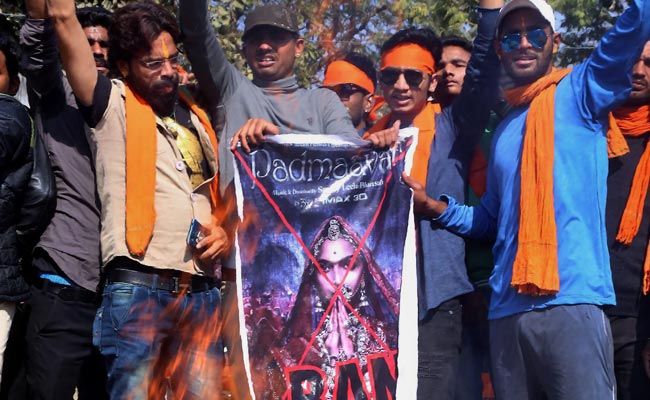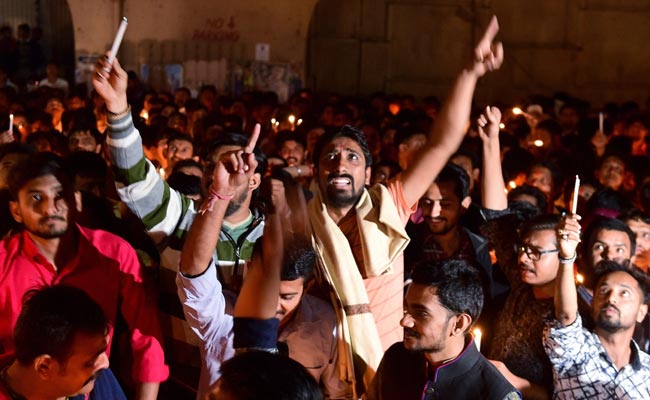To see the uncontrolled hooliganism that has taken over Gurugram (Gurgaon for those still unaccustomed to this name), parts of Rajasthan and Gujarat, three BJP-run domains, and three very popular destinations for industry, any businessmen, foreign or otherwise, would ask searching questions before putting their money into these states. They would ask why the government was unable to maintain law and order. And the simple answer would be that the violence is being led by the Karni Sena which is being permitted to call the shots - none of the governments running these states want to act as governments.

A school bus carrying students was attacked in Gurugram by a mob protesting "Padmaavat"
Nor would the investor find any succor in the stance of the union government which has remained completely silent on this issue. And that is not surprising. Seldom does this government directly on indirectly criticize what can be termed as Hindu fanaticism or extremism. The regular murder of people ostensibly because they were slaughtering or carrying cows to slaughter has only obliquely been criticised. Modi has made a few comments on this in his speeches, but there have been no clear orders to state governments to stamp out this lawlessness.

Groups like Karni Sena have vowed to block Padmaavat at all costs, in defiance of Supreme Court orders
On the flip side, as a political party, the BJP wants to sweep elections, eliminate the Congress, and establish itself as the dominant political party in the country for the foreseeable future. There, it returns to its very Hindu roots and its baser instincts. Here, in the political cauldron that is India, pushing Hindutva is the agenda. So everything from rampant communalism and banning cow slaughter to encouraging mythology over science is used to power the Hinduvta engine. And who can blame them? The BJP clearly found that using Hindutva was a political strategy that bore fruit, consolidating Hindu voters to overpower the Congress. The BJP has no need to pander to minorities as long as it keeps the Hindutva fires burning.

Violence and arson have been reported from parts of Haryana, Gujarat, Rajasthan and Uttar Pradesh
India may be a big market with great potential, but there are other markets with better infrastructure and a better-educated work force that also come with fewer chances of getting caught in a riot over some non-issue or being gored by a bull (as happened to Argentinian tourist in Jaipur). Let's get real - when the same states that are building the freight corridor can't govern, then money will go where money is wanted and money is safe.
(Ishwari Bajpai is Senior Advisor at NDTV.)
Disclaimer: The opinions expressed within this article are the personal opinions of the author. The facts and opinions appearing in the article do not reflect the views of NDTV and NDTV does not assume any responsibility or liability for the same.


